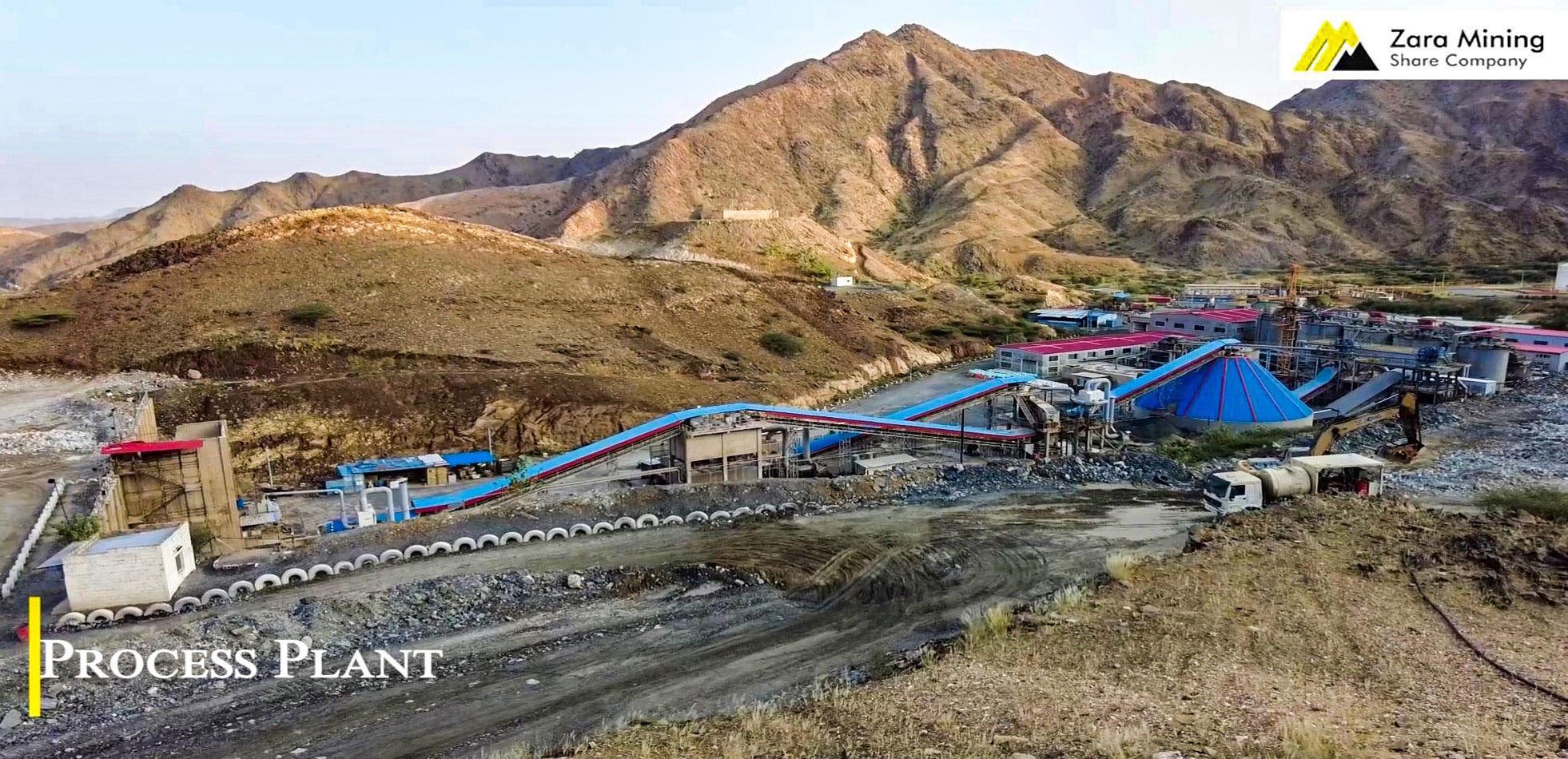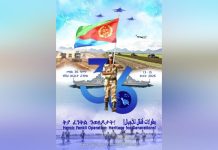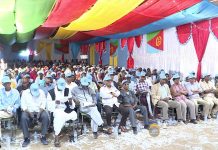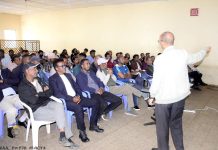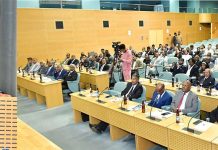Africa-Press – Eritrea. In recent years, Eritrea’s mining and energy sector has garnered considerable attention. However, much like broader international coverage of the country, mainstream narratives about Eritrea’s extractive industries have often been riddled with inaccuracies and stripped of context. Many observers hastily categorize Eritrea as just another resource-rich developing state destined to fall victim to the so-called “resource curse.”
These characterizations are not only superficial and misguided, but they also ignore the nuanced and deliberate role natural resources play within Eritrea’s broader national development strategy. This article aims to provide a clear, informed overview of Eritrea’s development philosophy and its strategic approach to natural resource management.
Contextualizing development on the continent
Africa remains the world’s poorest continent, with many of its nations ranking lowest on global socioeconomic and development indices. The continent’s developmental challenges are deeply rooted in a range of interrelated factors: colonialism and historical legacies, political instability, ethnic and religious divisions, weak institutions, corruption, inadequate infrastructure, mismanaged economies, and harmful foreign interference.
It is a sad reality that despite (or perhaps because of) decades of external advice, international aid, and various policy prescriptions, progress has often remained elusive. One of the more persistent fallacies in development discourse has been the notion that natural resources alone can drive growth – a supposed “magic pill.” While resources, if strategically managed, can provide a foundation for sustainable development, they can also lead to stagnation or regression, as seen in many resource-rich nations.
Eritrea’s holistic vision of development
Since gaining independence, Eritrea has emphasized a holistic, multifaceted approach to development. From the outset, the country’s leadership has been keenly aware of the dangers posed by mismanaged resource wealth, with the failures of other resource-endowed nations serving as cautionary tales.
Eritrea’s national development strategy prioritizes the rehabilitation and construction of infrastructure, enhancement of agricultural productivity, promotion of private investment and exports, investment in health and education, environmental protection, and grassroots community mobilization. At the heart of this strategy is a strong emphasis on people. As outlined on various occasions, “the Eritrean government’s policy is and has always been firmly centred on investing in human capital and youth, which are, without question, our most important resource and greatest asset.” Within this broader framework, natural resources are treated as a single component in a larger, interconnected development agenda – not a silver bullet.
Eritrea’s cautious and pragmatic approach to its natural resources is consistently reflected in policy and public statements. One strong reflection comes from over a decade ago, when at a 2013 address to the UN Security Council’s Thematic Debate on Conflict Prevention and Natural Resources, the late Araya Desta – then Eritrea’s Ambassador to the UN – emphasized sustainability and public ownership: “The cardinal principle of Eritrea’s mining policy [is that]… all mineral resources are public property, and their conservation and development must be ensured for Eritrea’s present and future generations.”
Furthermore, various national plans and sector strategies have spelt out that Eritrea: “…is aware that [its resources] are non-renewable…and they have the potential of being curses rather than blessings for societies. Focus on the mining sector often leads to ignoring more vital and sustainable sectors.” Additionally, the Director-General of the Department of Mines in the Eritrean Ministry of Energy and Mines, Alem Kibreab, has underscored that “…the mining sector must be developed slowly and carefully to prevent…the resources curse.”
Despite enduring the effects of conflict, infrastructural damage, and unlawful unilateral sanctions, Eritrea has made measurable progress in multiple development areas, particularly in health and education. Notably, it was one of the few countries to achieve key United Nations Millennium Development Goals (MDGs), especially those related to health. The country continues to make steady progress under the ongoing Sustainable Development Goals (SDGs) framework. Importantly, Eritrea enjoys relative peace and stability, low crime rates, and minimal corruption – factors often overlooked by external observers but critical to development.
Natural resources, when integrated with Eritrea’s broader development agenda, can continue to generate foreign capital, bolster infrastructure projects, and support national investments in social services and human development.
Zero tolerance for corruption
Concerns about resource mismanagement and corruption are valid in many developing contexts. However, Eritrea offers a distinct case. Numerous international officials have attested to its low levels of corruption. During a visit to Eritrea several years ago, the head of the African Development Bank Group remarked, “I marvel at some of the things I see here,” citing a UN official who claimed, “In Eritrea, corruption is zero percent.”
Also, Christine Umutoni, former UNDP Country Representative and UN Resident Humanitarian Coordinator, told the BBC: “We’ve seen value for money and accountability. You invest a little and you get a lot.” She added in an interview with Italy’s Africa Today, “Every dollar in this country has value… You will not see any of those things [aid or resources] sold in markets or diverted in any way.” Similarly, Susan Namondo Ngongi, another former UNDP Representative in Eritrea, stated that “Eritrea has one of the best-audited functions on the continent.”
Foreign business executives – including those from Western countries – have also testified to the absence of corruption in Eritrea, with many stating they had “no known or direct experience of corruption,” adding that any such behaviour would result in immediate contract termination by the Eritrean government.
Since its independence, Eritrea has prioritized the strong and clean management of its resources. The country has signed or acceded to over 120 international legal instruments, many of which are embedded in its Civil and Penal Codes. To operationalize its “zero tolerance” policy on corruption, Eritrea established a Special Court, as outlined in Proclamation No. 85/1996, to investigate corruption and the misuse of public resources. It also introduced and later updated Anti-Money Laundering Proclamations (Nos. 175/2014 and 181/2018).
Looking ahead
Eritrea has achieved notable developmental milestones, particularly in the areas of health, education, and socioeconomic advancement. Its natural resources have contributed to this success and hold further potential to accelerate progress. However, reliance on primary commodities poses inherent risks. Diversifying the economy, primarily through investment in manufacturing, is essential for long-term, resilient growth. In today’s rapidly evolving global economy, manufacturing provides a crucial pathway to modernization and economic development.
Eritrea’s investments in education and human capital development are key to enabling this transition. By cultivating a skilled workforce, Eritrea can enhance its competitiveness and participate more actively in global value chains. Finally, the international community has a crucial role to play: it must engage with Eritrea constructively, support its sovereign right to development, and advocate for the removal of illegal, unilateral sanctions and coercive measures that undermine national progress.
With a strategic, cautious, and people-centered approach to development, Eritrea is working to harness its resources as a catalyst, not a crutch, for national transformation. As the country continues on this path, global support grounded in respect, fairness, and partnership will be essential.
shabait
For More News And Analysis About Eritrea Follow Africa-Press


